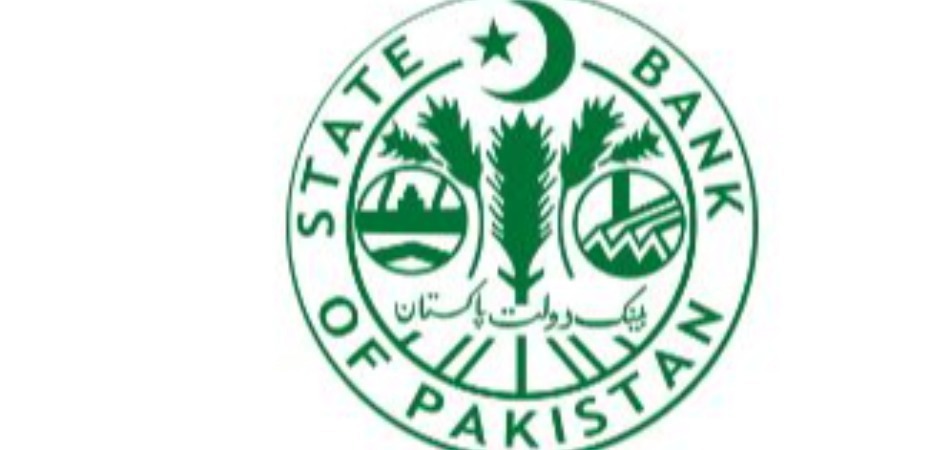Pakistan needs to get rid of IMF to achieve economic independence: Army Chief
.jpeg)
By MG News | September 05, 2023 at 12:09 PM GMT+05:00
September 05, 2023 (MLN): In order to establish a resilient and self-reliant economy, Pakistan needs to avert the necessity for seeking IMF programs in the future which has posed substantial challenges to the nation's economic stability, the Chief of Army Staff Asim Muneer stated during the high-level meeting with prominent businessmen.
While sharing the pivotal insights of the said meeting during a live TV program, Zubair Moti Wala, one of the distinguished businessmen, highlighted the prevailing challenges, such as the exchange rate, gas availability, and power tariffs.
Despite these hurdles, he expressed optimism, believing that even the implementation of 50% of the discussed plans could greatly benefit Pakistan's economic stability.
Arab countries are poised to inject $25 billion into Pakistan, with firm commitments from Muhammad bin Salman (Saudi Arabia) and the Army to ensure the agreed-upon terms remain unchanged.
Out of this $25bn, $10bn will be kept in reserves to strengthen the country’s reserve position.
A beacon of hope shines through with substantial investments on the horizon.
Further substantial investments are anticipated from Qatar, Kuwait, and China, particularly in the IT sector and mining.
Pakistan aims to attain self-sufficiency through privatization. Business leaders actively participated in discussions to chart a course that avoids the necessity of seeking assistance from international financial bodies like the IMF.
The Army chief made it unequivocally clear that neither oil nor dollars would flow between Pakistan and Afghanistan.
Moreover, a clear stance was also taken on Afghan refugees, with a commitment to properly host registered refugees while repatriating unregistered ones residing illegally in Pakistan.
The Army chief also asserted that action could be taken against individuals outside the tax net, signaling a drive to enhance tax compliance.
Renowned anchor Nadeem Malik in a live TV program delved into the pressing issues surrounding Pakistan's economic situation, sparking hope with discussions on investments and reforms.
Nadeem Malik asked President FPCI Sheikh Irfan who attended the meeting about the agenda of the meeting.
Sheikh Irfan shared that the Army Chief had highlighted a strong focus on advancing the Special Investment Facilitation Council (SIFC), with a particular emphasis on agriculture, minerals and mining, defense, and the IT sectors.
Army Chief stated that the substantial commitments from foreign investors, including Muhammad bin Salman (Saudi Arabia), Muhammad bin Zaid (UAE), Qatar, and Kuwait, have the potential to transform Pakistan's economic landscape with a total infusion of $100bn.
The thorny issue of smuggling, including commodities like wheat and sugar draining dollars from Pakistan to Afghanistan, was tackled head-on. Task forces on social media, money exchange, smuggling, and FBR are set to be formed to address these issues promptly.
Army Chief said that Muhammad bin Salman identified bureaucracy as a significant obstacle hindering investment in Pakistan. The Army chief assured him of a proactive and positive team from the SIFC to work tirelessly for Pakistan's betterment.
Nadeem Malik also spoke with Kashif Anwar, President of the Lahore Chamber of Commerce, who highlighted discrepancies in interbank and hawala hundi rates and called for more interactive sessions.
He praised the Army chief for his positive and attentive approach in addressing concerns related to the black and grey economy, as well as the need for reforms in electricity billing.
During Nadeem Malik's live TV program, he turned to Asif Peer, an IT expert from Systems Limited, to shed light on the IT sector and share insights from the meetings.
Asif Peer emphasized there was a significant focus on IT exports, highlighting the extensive discourse on this topic.
He expressed his belief that Pakistan possesses immense untapped potential in the export sector, particularly in IT.
He believes that the scope for Pakistan's export in this field is substantial, underscoring the expansive scope for export growth. According to him, focusing on this sector is of paramount importance.
On a positive note, Asif Peer revealed that Gulf Cooperation Council (GCC) countries are enthusiastic about investing in the IT industry. He stated that GCC countries are ready to invest in Pakistan.
For Asif Peer, instilling confidence in potential investors is crucial. He said we just need to give them confidence, suggesting that assuring investors of Pakistan's capabilities and potential could unlock significant opportunities.
Asif Peer pointed out that these countries are already engaged in outsourcing, and Pakistan has the potential to become a valuable partner in this field.
He remarked that outsourcing can be done from these countries, indicating that Pakistan can tap into the outsourcing activities that these nations are already involved in.
Asif Peer concluded by highlighting the importance of expanding business-to-business (B2B) and government-to-government (G2G) relations.
He believed that as Pakistan strengthens its ties with these nations, the potential for growth and collaboration in the IT sector will expand proportionally.
In a time marked by economic challenges, these discussions offer a ray of hope for Pakistan's economic future.
The commitment of both domestic and international stakeholders to address issues head-on and pave the way for sustainable growth is a promising sign for the nation.
Copyright Mettis Link News
Related News
| Name | Price/Vol | %Chg/NChg |
|---|---|---|
| KSE100 | 125,627.31 258.99M |
1.00% 1248.25 |
| ALLSHR | 78,584.71 1,142.41M |
1.16% 904.89 |
| KSE30 | 38,153.79 69.25M |
0.63% 238.06 |
| KMI30 | 184,886.50 91.38M |
0.01% 13.72 |
| KMIALLSHR | 53,763.81 554.57M |
0.54% 290.61 |
| BKTi | 31,921.68 33.15M |
1.78% 557.94 |
| OGTi | 27,773.98 9.65M |
-0.40% -112.21 |
| Symbol | Bid/Ask | High/Low |
|---|
| Name | Last | High/Low | Chg/%Chg |
|---|---|---|---|
| BITCOIN FUTURES | 108,115.00 | 109,565.00 107,195.00 |
630.00 0.59% |
| BRENT CRUDE | 66.60 | 67.20 65.92 |
-0.20 -0.30% |
| RICHARDS BAY COAL MONTHLY | 97.00 | 97.00 97.00 |
1.05 1.09% |
| ROTTERDAM COAL MONTHLY | 107.65 | 107.65 105.85 |
1.25 1.17% |
| USD RBD PALM OLEIN | 998.50 | 998.50 998.50 |
0.00 0.00% |
| CRUDE OIL - WTI | 64.98 | 65.82 64.50 |
-0.54 -0.82% |
| SUGAR #11 WORLD | 16.19 | 16.74 16.14 |
-0.52 -3.11% |
Chart of the Day
Latest News
Top 5 things to watch in this week
Pakistan Stock Movers
| Name | Last | Chg/%Chg |
|---|
| Name | Last | Chg/%Chg |
|---|



.jpg)